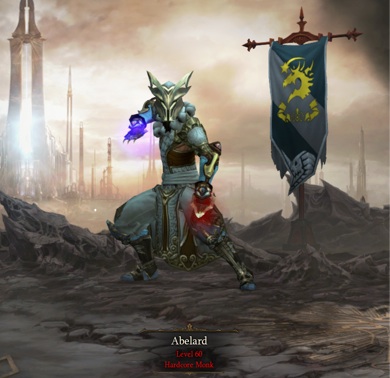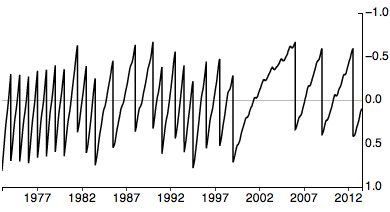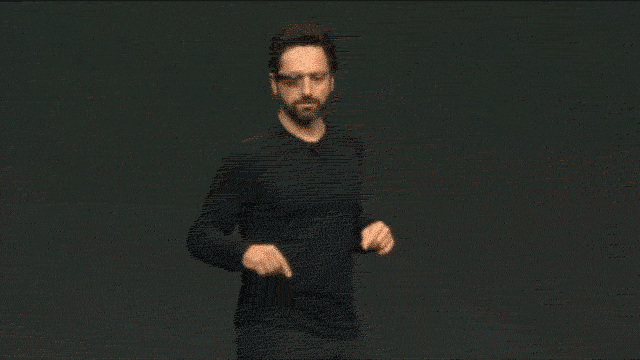|
Today just before 5pm California time is a special moment in timekeeping, 04:59:60 PDT. All sorts of software will subtly break because of the assumption that every minute has exactly 60 seconds or that time can’t stand still or repeat itself. Even my way of avoiding DST problems won’t help; UTC itself is changing. Why do we need leap seconds? Because the earth’s rotation is slowing down about 1.7ms every 100 years. Leap seconds resync our daily earth time to the absolute measurement of atomic clocks. There have been 25 leap seconds since 1972. The graph above (larger, in D3 code) is the offset between UTC and UT1. We decide to add a leap second when that offset gets too big. The detailed science behind this is fascinating; in the US the Naval Observatory manages the process.I find it frightening how variable the earth’s rotation speed is. That anomaly around 1998–2005 makes me nervous. The speed changes both on daily and yearly scales in an unpredictable fashion. Among other things it depends on the size of the polar glaciers; global warming may well be speeding the earth up. Contemporary games are designed so the player can never lose. No matter how badly you play you can always recover or reload and keep going. It’s good design, it encourages players to explore, it avoids frustration. But not being able to fail removes some challenge. If you can’t lose, then is winning really that interesting?  The tension is amazing. For example the boss fights; once you jump into the arena with Diablo you can’t leave. One of you is going to die. But the bosses aren’t the hardest part of the game, the optional champion packs are. And there the anxiety is incredible. I see a group with something hard like molten + frozen + vortex and have to make an instant choice. Do I risk fighting them? Do I avoid them and look for easier targets? Most of the time I engage because I’m playing for the challenge. And then sometimes things go badly and I’m running for my life, for my 45 hours invested, and those moments of fear and excitement are some of the most visceral experiences I’ve had playing a game in years. Since playing Eve Online, really. So I’m loving hardcore Diablo. It helps that I’m winning, I imagine I’m going to be pretty angry when I finally screw up. I’m not a very good loser. A nice confluence this week, gay pride in many cities and Alan Turing’s 100th birthday. Anyone paying attention knows by now that Turing was gay, persecuted, driven to suicide by some insane hormone treatment forced upon him. (Although there is room for doubt on intentional suicide). A tragedy, a powerful story about the importance of gay rights. So today I’d like to honor Andrew Hodges, the author of the 1992 biography on Turing that talked explicitly about his personal life, his homosexuality. So much of gay history is hidden, whispered, unwritten things that are eventually forgotten. Hodges did a huge service for me and other gay nerds by researching, documenting, holding up Turing as a role model. Here’s a lovely picture of Turing swimming in Sark. I particularly like this photo because it reminds me that Turing was not just a brilliant mathematician. He was also a young man who enjoyed skinny dipping, probably with other young men. It’s such a human moment for one of the most important intellectuals of the 20th century. A reminder of the importance of embracing all of a person’s life, not just their work. And here’s a photo from today, the Turing statue in Manchester, an impromptu gay pride demonstration. It’s getting better.Plex is good software. It’s a media player that makes it easy to play downloaded video on a TV. The mainstream market does not provide reasonable solutions for playing Internet video like Indie Game: The Movie. Plex fills the void nicely. There’s a bunch of competing media center apps; what’s important is the user interface, the remote, and the ease of playing video in any format. Plex is the best of the lot I’ve tried. Here’s a video demo of something like my setup. My player is a jailbroken AppleTV 2 with Plex. I haven’t kept up with the current jailbreak scene, but Seas0nPass at Firecore is a good place to start. I think there’s no jailbreak for the new AppleTV 3 yet, so this may be a bad time to be buying the hardware. There’s other AV hardware that runs Plex, and there are also Plex clients on desktop computers and iPads. My remote is a URC. The device is clunky but we already had it and the actual control part is rock solid. The AppleTV 2 remote is infrared only (dumb!), the URC is radio. Another option is to use an iPhone to control the AppleTV via WiFi. My server is Plex Media Server running on a Linux box with my video files. The Plex server transcodes while playing so you can play back pretty much any video format without having to convert ahead of time. I used to think transcoding on the player itself was better (a la Boxee), but I’ve come around. We’ve had 10 years of Internet video and there’s still no good consumer way to play downloads on a TV. You’d think the convergence would have happened by now. Instead the best mainstream option is still Tivo, a device that gets worse with every revision. In the meantime Netflix and Amazon are doing a complete end run around the mainstream market. I wish it would all just come together already. Interested in stories about motivated artists and craftsmen who toil for years on their own hoping for commercial success? Indie Game: The Movie is for you. I just watched it and it’s absolutely fantastic. Way better documentary filmmaking than the usual independent movie. And the film elevates the story; it’s not just about a few nerds making hipster games, it’s an intimate look into the lives of some very driven and talented people. It helps that the filmmakers picked three amazing independent games to cover. Super Meat Boy, Fez, and Braid are all great examples of indie games that benefit from a unique artistic perspective while also being fun to play. I really enjoyed the inside view of what it felt like to work for years on something so personal, the crises of faith, the joy of success. The film rests a little too heavy on the tortured artist narrative, but it was a great reminder to me of the cost of success. You can buy the movie for a very reasonable $10 from iTunes, Steam, or a direct DRM free purchase (1080p). The video quality is excellent. 
Last week I was one of the lucky few to attend Eyeo Festival, a creative code / data visualization / digital artist convention in Minneapolis. It was a great event that reconnected me with some old themes and see a lot of new work from the world’s practicing experts in new forms of visualization and interactive art. I wish I had a single word describing the conference subject. Part of it was explanations of visualization work by leading experts like Amanda Cox of the NYTimes, Nicholas Felton, or Viegas+Wattenberg. Part was discussion of more artistic projects like the storytelling work of Jonathan Harris, the generative jewelry of Nervous System, or the interactive media pieces of Scott Snibbe. And there was some inward-looking criticism and discussion of digital arts from Paola Antonelli and Marius Watz. But really Eyeo was an intimate gathering of a bunch of programmers and artists who are the first generation for which the Internet and personal computing are assumed, part of our everyday worlds. Eyeo was a family gathering for the folks who combine the technical capability of informatics with an æsthetic impulse. There’s a significant new worldview that comes with the computer and the Internet; the folks at Eyeo are reflecting that view with beauty. Assuming there’s an Eyeo 2013, sign up fast; this year sold out in six hours. Part of the magic is it’s an intimate event with as much socializing and lecturing, it can’t really scale. |
||





